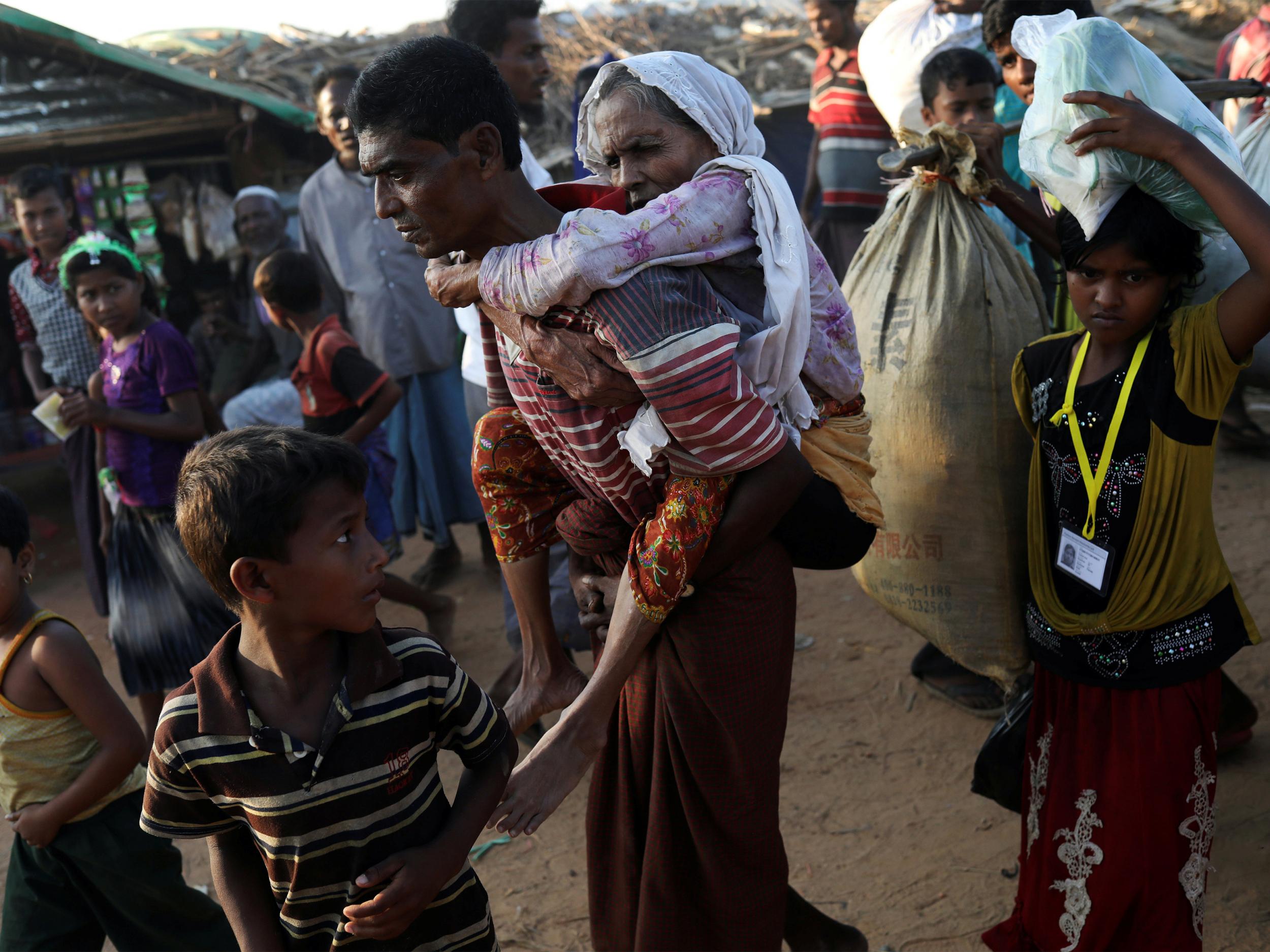Rohingya crisis: Burma's military targeted fleeing children and elderly, say Muslim refugees
Minority in exile in Bangladesh accuse soldiers and Buddhist leaders of carrying out systematic campaign of murder and burning villages

Your support helps us to tell the story
From reproductive rights to climate change to Big Tech, The Independent is on the ground when the story is developing. Whether it's investigating the financials of Elon Musk's pro-Trump PAC or producing our latest documentary, 'The A Word', which shines a light on the American women fighting for reproductive rights, we know how important it is to parse out the facts from the messaging.
At such a critical moment in US history, we need reporters on the ground. Your donation allows us to keep sending journalists to speak to both sides of the story.
The Independent is trusted by Americans across the entire political spectrum. And unlike many other quality news outlets, we choose not to lock Americans out of our reporting and analysis with paywalls. We believe quality journalism should be available to everyone, paid for by those who can afford it.
Your support makes all the difference.Rohingya refugees fleeing violence in Burma have told how the military targeted children and the elderly in sickening attacks.
The Muslim minority refugees said soldiers and Buddhist leaders carried out a systematic campaign of murder and burning villages - accusations that military leaders have denied.
Shawkat Ara, 38, said soldiers attacked her village in the middle of the night and she hid in the jungle with fellow villagers as they watched their houses burn.
She said: “The military told the young boys to stand in a line and told them to run. When they were running they rushed them from behind and they were falling in ditches.
“Some were cut into pieces and thrown into ditches. They were all between 10 and 12 years old.
“The military were actually playing with the boys. They were telling them to run and then cutting them.”
She added: “I broke my hand crawling into the jungle. When the soldiers started firing, people were running here and there, it was totally messed up.
“Fathers were not staying with their sons and sons were not looking for their fathers, just running for their lives.
“The small children were the worst affected because they can't run.”
Despite a recent agreement with the Burmese government for repatriation, refugees continue to arrive in Bangladesh, joining 646,000 who have braved the dangerous border crossing since the surge in violence after Rohingya militants reportedly attacked border posts in August.
Alistair Dutton, director of the Scottish Catholic International Aid Fund (Sciaf), which has raised more than £160,000 to help the refugees, said: “I don't know who's guilty of what but what has happened are crimes against humanity.
“The chopping people up, shooting them, burning bodies, torching villages, stealing belongings and driving people out their country - these are crimes against humanity whoever perpetrated them.”
Mr Dutton warned the crisis could last for years, stressing that Sciaf and charity partner Caritas Bangladesh were planning for the long term as the average time a person spends as a refugee is 17 years.
Mrs Ara, who saw her parents and one son die from hunger as she made the arduous journey to safety in Bangladesh, said she also witnessed soldiers attacking the elderly.
She said her neighbour, an elderly imam, was shot and attacked with machetes before being burned.
Kamal Hossain, 41, one of the Rohingya refugees who met the Pope on his recent visit to Burma and Bangladesh, said 80% of 9,675 people were killed in the district where he was leader.
He said: “The military applied their tricks - they were killing the elderly and young people first so that the other people would do nothing to them. They apply these techniques.
“Most people were burned and killed in fires set by the military. After the killing they threw the bodies into the ditches so people can't take the water because it is full of blood.
“The villagers had no food, so that made them flee.”
He also said the military forced him to watch as they raped his daughter-in-law.
PA
Join our commenting forum
Join thought-provoking conversations, follow other Independent readers and see their replies
Comments